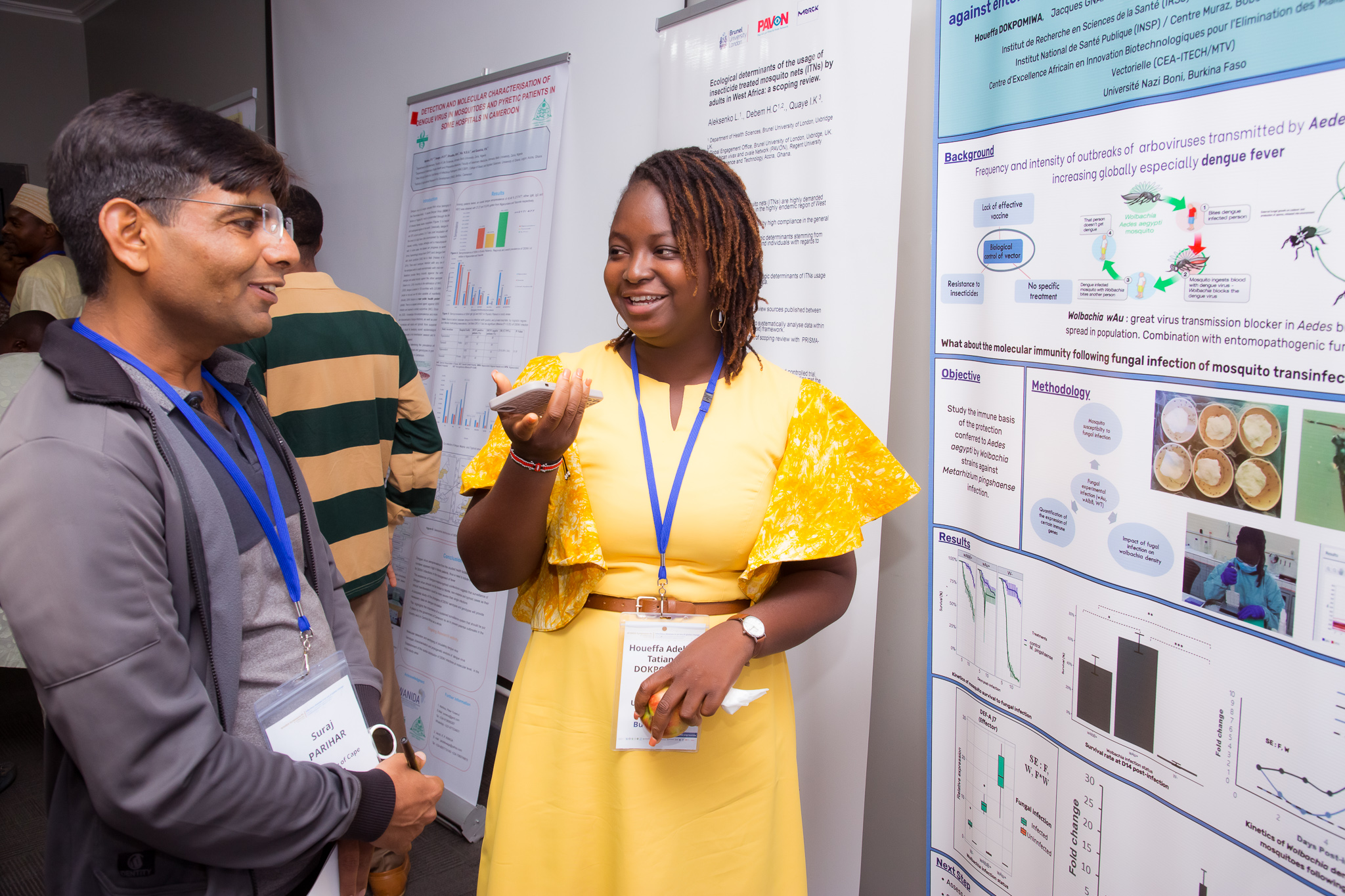In the current era where global academic and scientific collaboration is more important than ever the ACE Partner project stands as a beacon of innovation in health, technology, and the environment. A collaborative effort between the World Bank, the French Development Agency, the Institute of Research for Development, and the Association of African Universities, the ACE Partner project has made substantial strides in strengthening global ties and addressing sustainable development challenges across West Africa.
At the core of this success are the four networks of excellence driving this transformative initiative: the West African Network for Infectious Diseases ACEs (WANIDA), the Digital Science and Technology Network (DSTN), the Responsible Mining and Sustainable Development Network (RAM2D), and the Sustainable Water Management Network (RES-EAU). Each Network has contributed significantly, producing impactful scientific research, fostering global partnerships, and creating blueprints for regional development.
WANIDA’s Contribution – Addressing infectious diseases through collaboration
WANIDA has taken great strides in addressing infectious diseases, highlighting the interconnectedness of human, animal and environmental health. A significant milestone came in March 2023 where WANIDA hosted its inaugural symposium in Ghana, attracting over 500 experts from 152 institutions across 31 countries from Africa, United Kingdom, the United States of America and France. The symposium not only showcased cutting edge research but also reinforced WANIDA’S commitment to multidisciplinary collaborations. The Symposium’s My Thesis in 3 Minutes challenge showcased students’ research skills in infectious diseases, and a rewarded of the top the winners receiving €4,000 to advance their work.
The winning thesis focused on innovative research into infectious diseases, particularly in West Africa. It focused on addressing a critical issue related to the prevention, diagnosis, and treatment of infectious diseases prevalent in the region. The project stood out for its potential to contribute significantly to public health through the development of new diagnostic tools, treatment strategies, and public health interventions tailored to the unique challenges of West Africa. The presenters’ ability to clearly and concisely communicate the essence and impact of their research within a three-minute timeframe was crucial to their success in the competition. This achievement also highlights WANIDA’s recognition of effectively translating complex scientific research into accessible information that can drive real-world change.
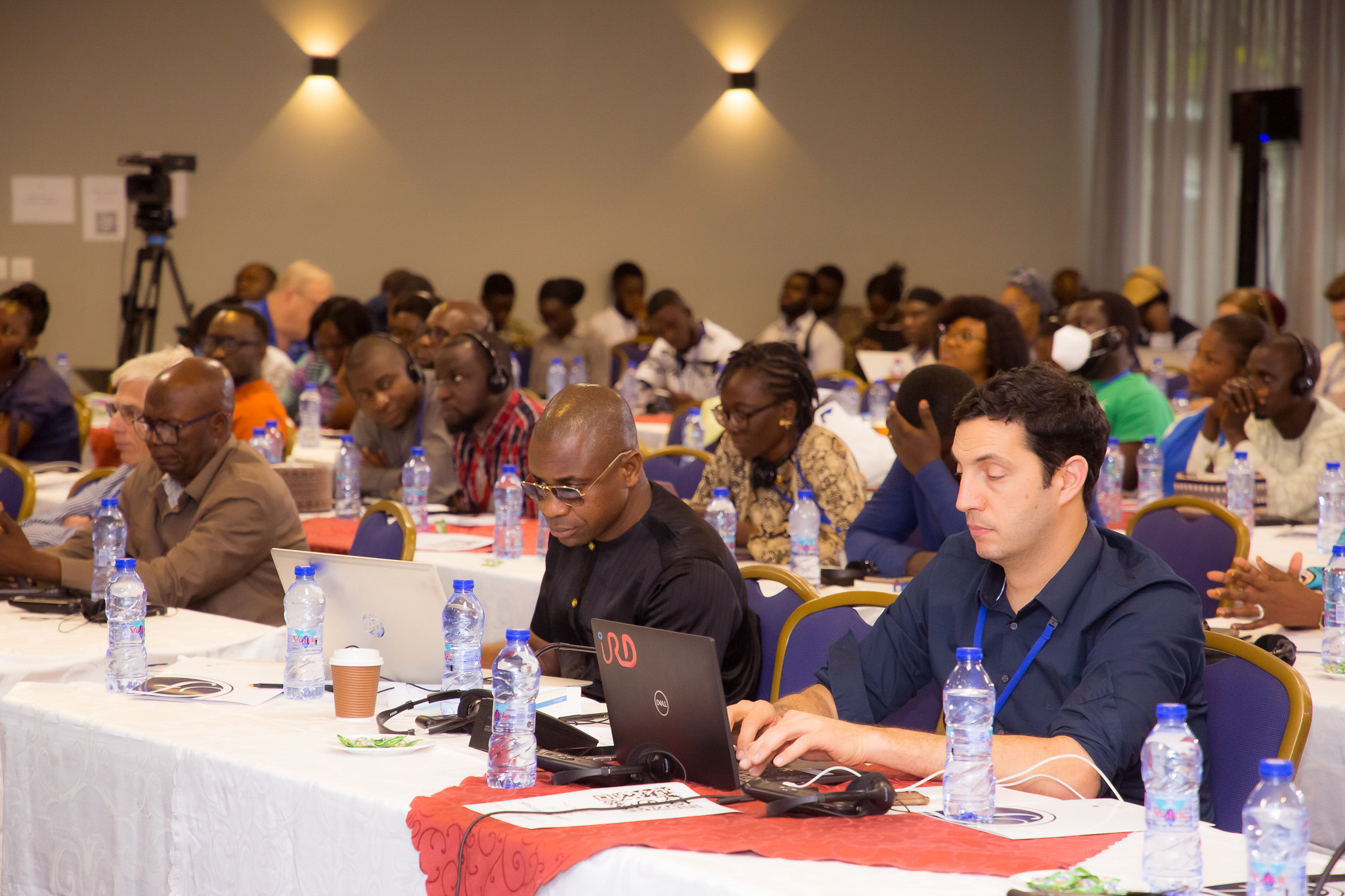
WANIDA’s participation at global events such as the 15th International Congress of Parasitology (ICOPA) in Denmark further amplified its influence, with presentations on treatments for a parasitic disease called schistosomiasis and how to control the snails that spread it. studies on malaria were highlighted, specifically focusing on the spread of the disease and the behaviour of the parasite that causes it. Additionally, the WANIDA researchers explored how certain chemicals could be used to target the parasite that causes another severe disease called trypanosomiasis. Finally, they looked at how a type of bacteria called Wolbachia could help reduce the spread of malaria by affecting the mosquitoes that carry the disease. WANIDA is providing that local research can have global implications, driving impactful solutions to some of the West Africa’s most pressing health challenges.
DSTN’s Contribution: Pioneering Digital Innovation for Sustainable Development
Digital Science and Technology Network (DSTN) has been a catalyst for digital transformation in Africa. With the increasing importance of digital infrastructure, the DSTN has spearheaded initiatives that bridge the gap between academia, industry, and policy. The DSTN symposium in December 2021 in Senegal underscored the importance of digital science and technology in achieving sustainable development. The event brought together key stakeholders to discuss the intersection of research, innovation, and technology transfer. The outcome culminated into a Joint Manifesto outlining key recommendations for Africa’s digital development.


DSTN’s influence reached global platforms, including the UNESCO World Conference on Higher Education (WHEC 2022). The network brought together experts from across the continent to discuss digital transformation in education, assess the impact of the COVID-19 pandemic on higher education delivery, and propose actionable recommendations for advancing digital transformation in the region. DSTN highlighted the importance of digital infrastructure investments, multidisciplinary collaboration, and regulatory frameworks to support digital education strategies.
At the WACREN 2022 Conference in Cote d’Ivoire, DSTN played a crucial role by co-organising a high-level regional workshop on High-Performance Computing (HPC). This workshop culminated in developing strategies and a roadmap for a sustainable HPC collaborative network, securing stakeholder commitments, and identifying key focus areas such as training, infrastructure, connectivity, and governance. DSTN’s efforts promise to enhance HPC capabilities in West and Central Africa, expand training initiatives, and strengthen partnerships with industry and international stakeholders.
At the African Matters Conference in Senegal in 2018, DSTN advocated bridging the gap between digital and social sciences, research and industry, and various stakeholders to drive technological and social innovation in Africa. The network showed how digital transformation can address major development challenges like poverty, healthcare, and cybersecurity. DSTN’s contribution enhanced partnerships, deepened skills and knowledge sharing on AI, and developed ethical frameworks for AI deployment to ensure inclusive and responsible technological advancement across Africa.
Through these forums, DSTN has shaped the future of digital education in Africa, promoting high performance computing (HPC) and fostering collaboration between universities and industry leaders.
RAMR2D’s Contribution – Advocating for Responsible Mining and Sustainable Development
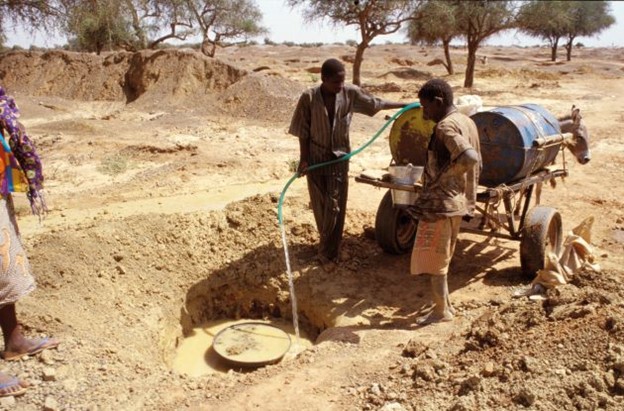
In Response to the environmental and social challenges posed by the mining, the Responsible Mining and sustainable Development Network (RAMR2D) has been tackling and promoting sustainable practices. In June 2022, The RAMR2D Bootcamp in Niger brought together over 200 stakeholders to dialogue on the impacts of artisanal gold mining in West Africa. The boot camp culminated in The Niamey Declaration, which proposed a holistic approach to artisanal and semi-industrial gold mining, innovative solutions within a community of practice, and a regional multistakeholder regulatory framework.
RAMR2D’s contributions to global conversation efforts such as Motion 67 at the 2021 IUCN Congress have raised its profile as a key player in sustainable mining practices. RAMR2D’s involvement enhanced its visibility among global conservation stakeholders and positioned it as a key player in advocating biodiversity protection in mining activities, contributing to global conservation efforts. RAMR2D also co-organised the Mining Connections Conferences in 2022 and 2024, fostering collaboration among global researchers, NGOs, and mining companies to address mining challenges and opportunities and promote data transparency for responsible mining in West Africa.
RAM2RD participation in the 3rd ECOWAS Mining and Petroleum Forum in Niger, the network emphasised the integration of the mining and oil industries into the regional value chain to boost economic and social development. This effort was deepened at the DEJ’CRYPTAGE AFD and Partner webinar in 2023, where the network highlighted the importance of research and innovation to reduce environmental impacts and promote sustainable resource management. At the AFD-ACE Partner Webinar, the network advocated a cross-disciplinary approach to developing holistic solutions. RAMR2D focused on sustainable resource extraction, environmental impact assessment, and community engagement, underscoring the importance of technological advancements, policy reforms, capacity-building, and cultural shifts for sustainable development in Africa.
By promoting data transparency, engaging in policy reforms, and hosting the mining connections, the RAM2RD continues to champion responsible resources extraction across the region.
RES-EAU’s Contribution: Innovating Water Management in the West Africa
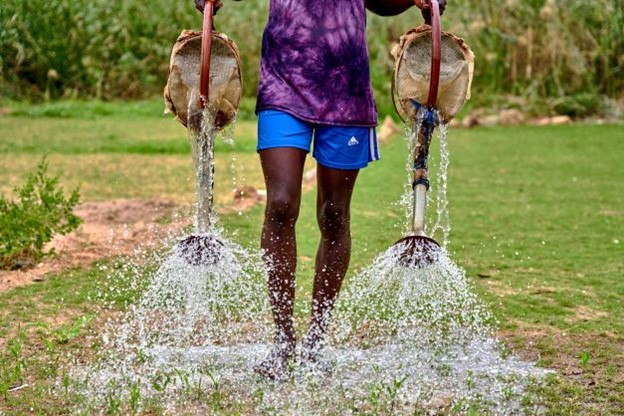
Water is a critical resource for life, and the Sustainable Water Management Network (RES-EAU) has been instrumental in enhancing water security. in the Sahel region through global forums and partnering with regional stakeholders. At the World Water Forum in Senegal, RES-EAU showcased innovative water management interdisciplinary solutions, sustainable water management, establishing partnership with key stakeholders such as Senegal’s SEN’EAU and Cote d’Ivoire’s Veolia to led new research programmes and internship opportunities.
RES-EAU’s work has gained global recognition, with the UNCCD appointing the network to develop a transboundary water strategy for the Great Green Wall (GGW) initiative. By integrating advanced technologies like remote sensing, and stakeholders’ collaboration, RES – EAU’s network has been crucial in ensuring efficient and equitable water use within the GGW projects, enhancing water security, combating desertification, and promoting environmental sustainability in the Sahel, which aligns with GGW’s broader goals.
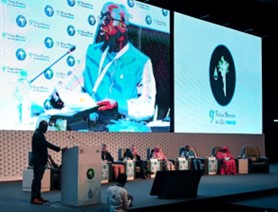
A lasting Legacy for Global Impact
As the ACE Partner project concludes its formal funding phase, the legacy of its four networks WANIDA, DSTN, RAMR2D, and RES-EAU— will continue to drive progress in health, technology, and environmental sustainability. The project stands as a reference point of what can be achieved when shared vision, collaboration, innovation and dedication converge, offering a sustainable blueprint for future initiatives.
